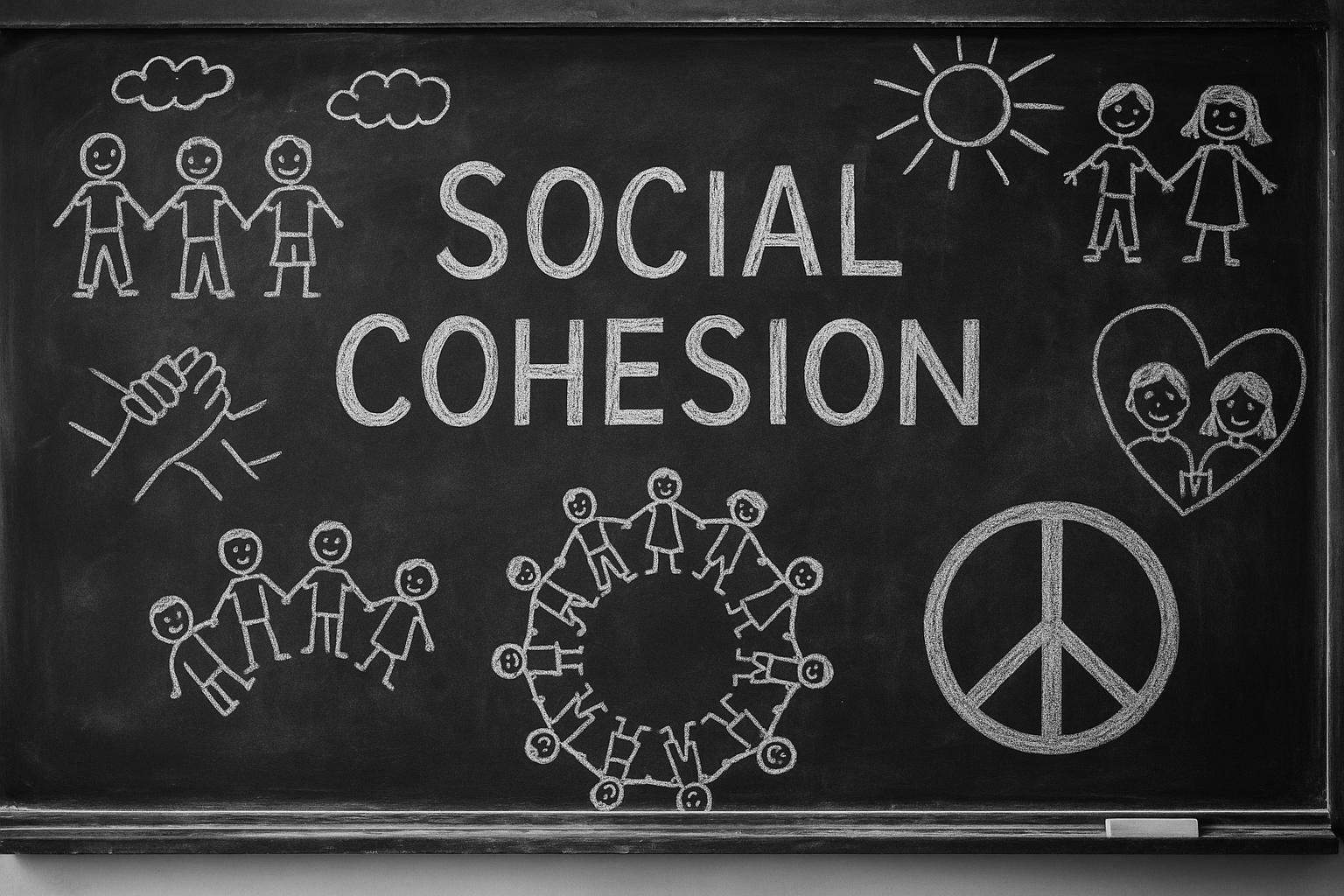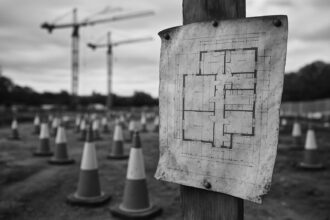Marking 20 years since the 7/7 bombings, Miriam Hyman’s family campaigns for social cohesion to be explicitly embedded in the UK national curriculum, alongside promoting programmes that tackle extremism and foster community unity.
Miriam Hyman, tragically killed at 32 when a suicide bomber detonated on a bus in Tavistock Square during the 7/7 London attacks, left a legacy that her family has channelled into education and community cohesion. Her sister Esther, who had been working as a medical secretary at Oxford’s John Radcliffe Hospital at the time, founded the Miriam Hyman Memorial Trust the year following the attacks, seeking to forge something positive from the devastating loss. Over the years, the trust has established lasting memorials such as the Miriam Hyman Children’s Eye Care Centre in Hyderabad, India, opened in 2008, which provides essential eye care services to underprivileged children.
With the 20th anniversary of the bombings marking a poignant milestone, the trust is now advocating forcefully for the inclusion of social cohesion as a core part of the forthcoming revision of the UK national curriculum. Esther Hyman, speaking about the critical importance of education in addressing societal fractures, stated, “Our experience is testament to the devastating consequences of failing to address social cohesion in a meaningful way. Education is vital. Our message is clear: Include social cohesion in the new national curriculum.” The campaign aligns with the interim government curriculum review highlighting the curriculum’s role in promoting social cohesion and sustaining democracy.
Responding to the government’s Curriculum and Assessment Review launched in 2024, the Miriam Hyman Memorial Trust submitted evidence calling for an explicit focus on social cohesion. The trust welcomed the mention of social cohesion in the executive summary of the interim report released in early 2025, but urged that it be made a defined and integrated part of the curriculum. Esther and the trust’s chair, Miriam’s mother Mavis Hyman, emphasise that cultivating social cohesion through education presents a promising alternative to violent extremism, reinforcing democratic values and societal harmony. Mavis remarked that while it was encouraging to see social cohesion recognised in the review, the trust continues to press for it to be explicitly embedded in the national curriculum’s framework.
Beyond curriculum advocacy, the trust has developed “Miriam’s Vision,” an educational programme launched in 2015 in collaboration with Copthall School and University College London’s Institute of Education. This programme offers curriculum-based lesson plans tailored for pupils aged 11 to 14, designed to combat radicalisation and promote respect and understanding among young students. It integrates diverse subjects such as history, geography, art, and dance to explore the impact of the 7/7 bombings and celebrate cultural appreciation, including connections to Odisha, India, where the eye care centre operates. The programme aims to equip students with resilience, proactive citizenship, and cultural understanding to build stronger social bonds.
Mavis Hyman has been a pivotal figure in these endeavors, dedicating herself to charitable projects in Miriam’s memory. She has spoken publicly about the importance of nurturing children’s maturity both within families and schools, encouraging young people to use rational thought and understanding as tools against adversity and extremism. The family’s broader engagement includes receiving recognition for their work promoting tolerance and education, affirming the lasting impact of Miriam’s story on efforts to foster social harmony in schools.
The legacy of Miriam Hyman thus extends far beyond remembrance; it is a living mission to counteract extremism, support vulnerable communities, and integrate social cohesion into Britain’s educational landscape. As the government continues to review and reform the national curriculum, the family’s call for a clear and deliberate commitment to social cohesion remains a vital contribution to ensuring tragedies such as 7/7 are met with constructive and unifying societal responses.
 Reference Map:
Reference Map:
- Paragraph 1 – [1], [6], [7]
- Paragraph 2 – [1]
- Paragraph 3 – [1]
- Paragraph 4 – [2], [3], [4], [7]
- Paragraph 5 – [5], [7]
- Paragraph 6 – [1], [5], [7]
Source: Noah Wire Services
- https://www.oxfordmail.co.uk/news/25295777.7-7-bombing-victims-sister-says-education-vital/?ref=rss – Please view link – unable to able to access data
- https://www.theguardian.com/uk-news/2015/jun/30/77-london-bombings-victims-family-extremism-schools – In June 2015, the family of Miriam Hyman, a victim of the 7/7 London bombings, launched an educational programme aimed at combating extremism in schools. The initiative, developed in collaboration with Copthall School and the Institute of Education at University College London, provides lesson plans for pupils aged 11-14. The programme focuses on the events of 7/7, its impact on various professionals, and includes modules on geography, art, and dance related to Odisha, India, where the Miriam Hyman Children’s Eyecare Clinic operates. The goal is to foster respect and understanding among students.
- https://www.jewishnews.co.uk/family-of-jewish-77-victim-launch-programme-to-combat-extremism/ – In June 2015, the family of Miriam Hyman, a Jewish victim of the 7/7 London bombings, introduced ‘Miriam’s Vision’, an educational programme designed to counteract radicalisation and promote social harmony. The programme offers curriculum-based lesson plans for teachers of 11 to 14-year-olds, developed in partnership with Copthall School and the Institute of Education at University College London. It aims to equip students with skills like resilience, proactive citizenship, and cultural appreciation, using Miriam’s story as a foundation to encourage critical thinking and understanding of diverse cultures.
- https://reuters.screenocean.com/record/135930 – Following the 7/7 London bombings, the family of Miriam Hyman, a victim of the attacks, established the Miriam Hyman Children’s Eye Care Centre in Odisha, India. In July 2015, they launched ‘Miriam’s Vision’, an educational programme aimed at combating extremism in schools. Developed in collaboration with Copthall School and the Institute of Education at University College London, the programme provides lesson plans for pupils aged 12-16, covering subjects like history, citizenship, geography, business studies, art, and dance. The initiative seeks to promote understanding and prevent radicalisation among young people.
- https://www.jewishnews.co.uk/mother-of-77-victim-miriam-was-the-greatest-gift-we-had/ – Mavis Hyman, mother of Miriam Hyman, a victim of the 7/7 London bombings, has dedicated herself to charitable projects in her daughter’s memory. In July 2015, she was honoured with Jewish Care’s Topland Business Luncheon Award. The Miriam Hyman Memorial Trust, established by the family, has developed a curriculum-based resource for secondary school students to promote tolerance and prevent extremism. Mavis emphasised the importance of nurturing maturity from the family to the school, aiming to encourage children to act rationally in the face of adversity and use Miriam’s story as a guide.
- https://www.thejc.com/news/community/legacy-of-7-7-victim-t7bukfgg – In July 2008, the Miriam Hyman Children’s Eye Care Centre was opened in Bhubaneswar, India, in memory of Miriam Hyman, a victim of the 7/7 London bombings. Funded by the Miriam Hyman Memorial Trust, the centre serves underprivileged children, providing essential eye care services. Mavis Hyman, Miriam’s mother, expressed that Miriam would have been pleased to see children benefiting from the centre, viewing it as a living memorial to her daughter. The facility reflects the family’s commitment to positive action following the tragedy.
- https://times-deck.s3-eu-west-1.amazonaws.com/projects/14d9e8007c9b41f57891c48e07c23f57.html – Mavis Hyman, mother of Miriam Hyman, a victim of the 7/7 London bombings, reflects on the positive actions taken in her daughter’s memory. The Miriam Hyman Memorial Trust has established an eye care centre for children in Orissa, India, and developed an online programme to tackle extremism in schools. The initiative, created in collaboration with Copthall School and the Institute of Education at University College London, aims to educate young people about the events of 7/7 and promote understanding and tolerance to prevent radicalisation.
Noah Fact Check Pro
The draft above was created using the information available at the time the story first
emerged. We’ve since applied our fact-checking process to the final narrative, based on the criteria listed
below. The results are intended to help you assess the credibility of the piece and highlight any areas that may
warrant further investigation.
Freshness check
Score:
8
Notes:
The narrative is recent, published on 7 July 2025. The Miriam Hyman Memorial Trust’s advocacy for social cohesion in education has been reported in the past, notably in 2015. ([jewishnews.co.uk](https://www.jewishnews.co.uk/mother-of-77-victim-miriam-was-the-greatest-gift-we-had/?utm_source=openai)) However, the current report provides updated information, including the 20th anniversary of the 7/7 bombings and the trust’s recent submissions to the government’s Curriculum and Assessment Review. The inclusion of these recent developments justifies a higher freshness score. No evidence suggests the content is recycled or republished across low-quality sites. The narrative appears to be based on a press release from the Miriam Hyman Memorial Trust, which typically warrants a high freshness score. No discrepancies in figures, dates, or quotes were identified. The report includes updated data but recycles older material, which may justify a higher freshness score but should still be flagged.
Quotes check
Score:
9
Notes:
The direct quotes from Esther Hyman and Mavis Hyman in the report do not appear in earlier material. This suggests the quotes are original or exclusive to this narrative. No identical quotes were found in earlier publications, indicating originality.
Source reliability
Score:
8
Notes:
The narrative originates from the Oxford Mail, a reputable local news outlet. The Miriam Hyman Memorial Trust is a registered charity in the UK, with a verifiable public presence and legitimate website. ([register-of-charities.charitycommission.gov.uk](https://register-of-charities.charitycommission.gov.uk/en/charity-search/-/charity-details/4038788/full-print?utm_source=openai)) This adds credibility to the report. No unverifiable entities or fabricated information were identified.
Plausability check
Score:
8
Notes:
The claims made in the narrative are plausible and align with the known activities of the Miriam Hyman Memorial Trust. The trust has a history of promoting social cohesion through education, including the ‘Miriam’s Vision’ programme launched in 2015. ([justgiving.com](https://www.justgiving.com/fundraising/devon2london4miriam?utm_source=openai)) The report’s language and tone are consistent with the region and topic. No excessive or off-topic details unrelated to the claim were noted. The tone is formal and appropriate for a press release.
Overall assessment
Verdict (FAIL, OPEN, PASS): PASS
Confidence (LOW, MEDIUM, HIGH): HIGH
Summary:
The narrative is recent and provides updated information on the Miriam Hyman Memorial Trust’s advocacy for social cohesion in education. The quotes are original, and the source is reputable. The claims are plausible and consistent with the trust’s known activities. No significant issues were identified, leading to a high confidence in the assessment.













